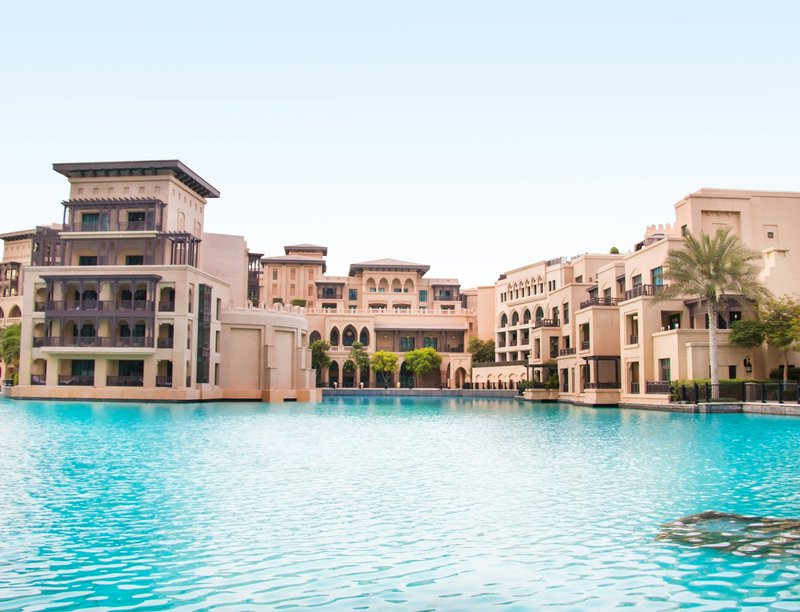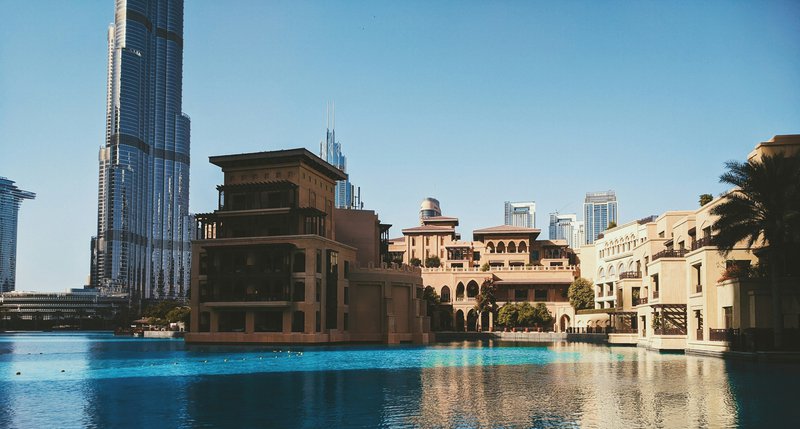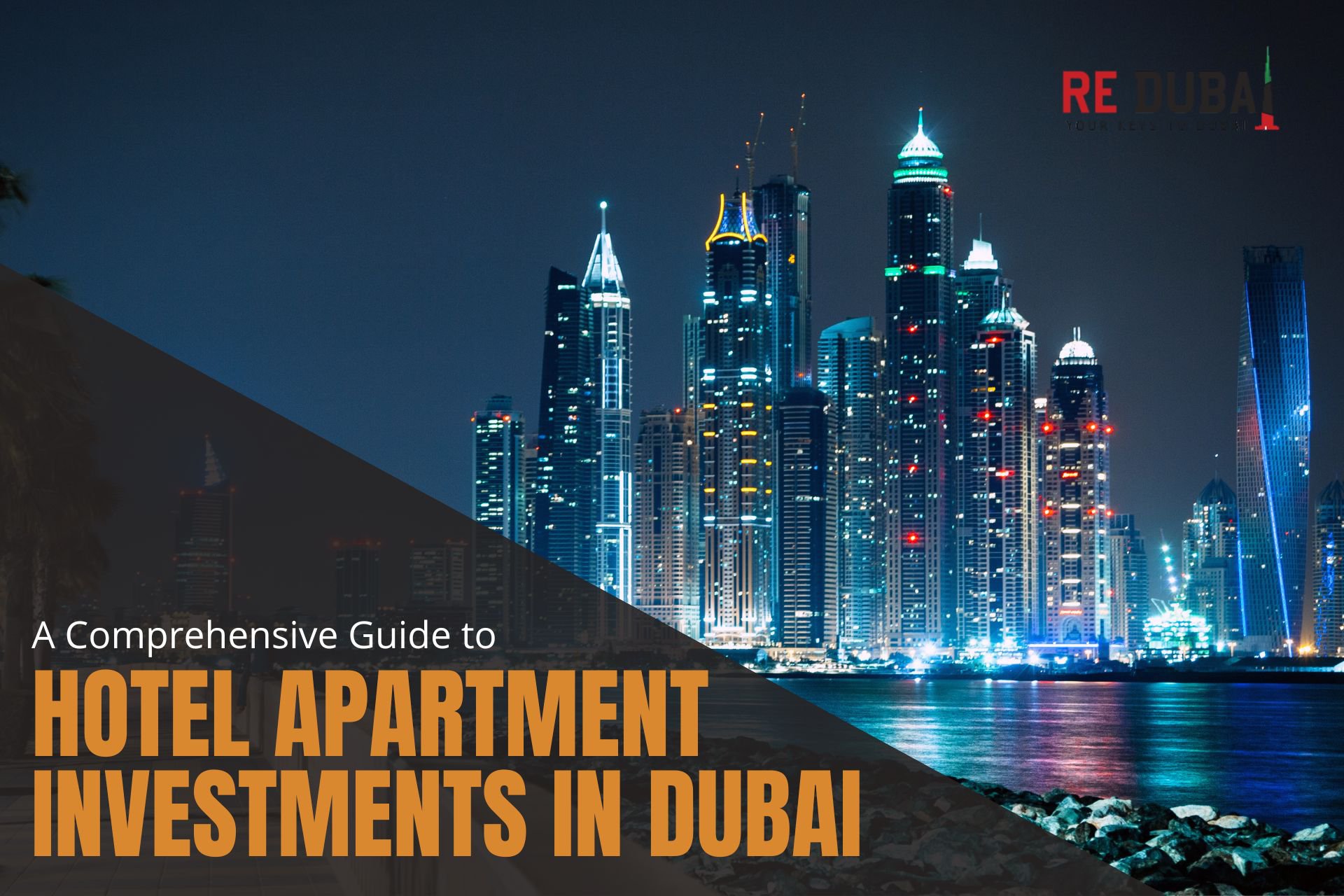Dubai's hotel apartment investments have emerged as a lucrative segment within the city's real estate market, attracting investors worldwide. This guide provides an in-depth exploration of this thriving sector, highlighting its growth trajectory, significance, and investment potential.
Dubai's Hotel Apartment Market Overview
The hotel apartment market in Dubai has witnessed remarkable growth in recent years, fueled by the city's status as a global business and tourism hub. With an influx of international visitors and a thriving hospitality sector, the demand for hotel apartments has remained robust. Key statistics reveal a steady increase in occupancy rates and average daily rates, indicating a healthy market environment for investors. Furthermore, Dubai's strategic location, world-class infrastructure, and favorable business environment contribute to its attractiveness for hotel apartment investments.
Investment Opportunities in Hotel Apartments
Investors keen on tapping into Dubai's hotel apartment market can explore various opportunities tailored to their preferences and risk appetite. Dubai offers a range of hotel apartments catering to different market segments and investor profiles. From luxurious five-star hotel residences with full-service amenities to more affordable mid-range options, the market accommodates diverse investment strategies. Additionally, investors can choose between fully furnished and serviced hotel apartments, each offering distinct benefits in terms of rental income and management convenience. Whether targeting high-end business travelers or budget-conscious tourists, Dubai's hotel apartment market presents opportunities for investors to capitalize on the city's thriving hospitality sector.

Benefits of Hotel Apartment Investments
Hotel apartment investments offer several advantages that make them an attractive option for investors.
Pros:
- High Occupancy Rates: Hotel apartments typically experience higher occupancy rates compared to traditional residential properties, especially in prime locations with high demand from tourists and business travelers.
- Stable Rental Income: With professional property management and marketing efforts by hotel operators, investors can enjoy a steady stream of rental income, providing financial stability and predictability.
- Potential for Long-Term Appreciation: Dubai's dynamic real estate market, coupled with the city's status as a global business and tourism hub, presents opportunities for long-term capital appreciation, offering investors the potential for significant returns on investment.
- Professional Property Management: Unlike traditional residential properties, hotel apartments benefit from professional property management and maintenance services provided by established hotel operators. This ensures efficient operations, timely maintenance, and enhanced property value over time, reducing the burden on investors.
- Flexibility for Personal Use: Investors in hotel apartments enjoy the flexibility to use the property for personal use while generating rental income when the unit is not occupied. This balance between lifestyle and investment objectives allows investors to enjoy the perks of owning a luxury property in Dubai while maximizing rental returns.
Cons:
- Dependency on Tourism and Business Trends: Hotel apartment investments are influenced by tourism and business trends, making them susceptible to fluctuations in visitor arrivals and economic conditions. Periods of low tourism demand or economic downturns may impact occupancy rates and rental income.
- Operational Costs and Fees: While professional property management is a benefit, investors should be aware of associated operational costs and fees charged by hotel operators, such as management fees, marketing expenses, and maintenance costs, which can impact overall profitability.
- Regulatory Restrictions: Investors must navigate regulatory restrictions governing hotel apartment investments, including licensing requirements, ownership restrictions, and compliance with hospitality regulations. Changes in regulations may affect the operational environment and investment viability.
Despite these considerations, hotel apartment investments in Dubai offer compelling advantages, including high occupancy rates, stable rental income, potential for capital appreciation, professional property management, and flexibility for personal use, making them a viable option for investors seeking exposure to the city's vibrant real estate market.
ROI in Dubai's Hotel Apartment Sector
Analyzing the potential return on investment (ROI) in Dubai's hotel apartment sector involves a comprehensive assessment of various factors that influence performance and profitability. While hotel apartment investments offer the potential for lucrative returns, they are subject to several variables that investors must carefully evaluate.
Factors Influencing ROI:
- Location: The location of a hotel apartment property is a critical factor in determining its potential ROI. Properties situated in prime locations with high tourist traffic, proximity to key attractions, business districts, and transportation hubs tend to command higher occupancy rates and rental yields, thus offering better ROI prospects.
- Quality of Amenities and Services: The quality of amenities and services provided by the hotel operator directly impacts the attractiveness of the property to guests and, consequently, its revenue-generating potential. Properties offering luxurious accommodations, state-of-the-art facilities, and exceptional hospitality services are likely to achieve higher average daily rates (ADR) and occupancy levels, leading to enhanced ROI.
- Market Conditions: Dubai's hotel apartment sector is influenced by market conditions, including supply and demand dynamics, economic trends, and geopolitical factors. Changes in tourist arrivals, business travel patterns, and overall market sentiment can impact occupancy rates, ADR, and revenue per available room (RevPAR), consequently affecting the property's ROI.
- Operational Efficiency: Efficient property management and operational practices are essential for maximizing ROI in the hotel apartment sector. Investors should assess the capabilities and track record of the hotel operator in optimizing revenue, controlling operating expenses, and maintaining guest satisfaction levels to ensure sustainable profitability.
Assessment and Analysis:
Investors interested in hotel apartment investments in Dubai must conduct thorough due diligence and financial analysis to assess the viability of their investment strategy and estimate potential ROI. This process involves:
- Market Research: Understanding market trends, demand drivers, and competitive landscape in the hotel apartment sector.
- Financial Projections: Developing comprehensive financial projections based on occupancy rates, ADR, RevPAR, and operating expenses to forecast potential cash flows and ROI over the investment period.
- Risk Assessment: Identifying and evaluating risks associated with the investment, such as regulatory changes, economic downturns, and competitive pressures, to mitigate potential downside risks.
- Feasibility Analysis: Assessing the feasibility of the investment based on factors such as capital requirements, financing options, and projected returns to determine whether the investment aligns with the investor's objectives and risk tolerance.
Analyzing the ROI potential of hotel apartment investments in Dubai requires a thorough understanding of market dynamics, careful assessment of various factors influencing performance, and diligent financial analysis. By considering factors such as location, quality of amenities, market conditions, and operational efficiency, investors can make informed decisions and maximize their ROI in Dubai's dynamic hotel apartment sector.

Dubai Hospitality Real Estate Trends
Exploring broader trends in Dubai's hospitality real estate market unveils valuable insights into hotel apartment investments. Technological advancements, changing consumer preferences, and regulatory developments play pivotal roles in shaping the landscape of Dubai's hospitality sector, thereby influencing investment opportunities and market dynamics.
Technological Advancements:
Technological innovation is revolutionizing the hospitality industry in Dubai, presenting both opportunities and challenges for hotel apartment investors. Advancements in digital platforms, artificial intelligence, and data analytics are enhancing guest experiences, streamlining operations, and optimizing revenue management strategies. For hotel apartment properties, adopting cutting-edge technologies such as mobile check-in/check-out, smart room controls, and personalized guest services can enhance competitiveness, attract discerning travelers, and drive higher occupancy rates and ADR.
Changing Consumer Preferences:
Consumer preferences in the hospitality sector are evolving in response to shifting demographics, lifestyle trends, and socio-cultural factors. Millennials and Gen Z travelers, known for their tech-savvy nature and preference for experiential travel, are driving demand for unique and immersive accommodation experiences. Hotel apartment investors can capitalize on this trend by offering innovative amenities, flexible booking options, and curated lifestyle experiences tailored to the preferences of modern travelers. Additionally, growing interest in sustainable tourism and wellness-focused experiences presents opportunities for eco-friendly and wellness-oriented hotel apartment properties to cater to niche market segments and differentiate themselves in the competitive landscape.
Regulatory Developments:
Regulatory developments in Dubai's hospitality sector, including changes in licensing requirements, ownership regulations, and compliance standards, have significant implications for hotel apartment investments. Recent regulatory initiatives aimed at enhancing transparency, investor protection, and sustainability are reshaping the operating environment for hotel apartment properties. Investors should stay abreast of regulatory updates and ensure compliance with relevant laws and regulations to mitigate legal risks and safeguard their investments. Moreover, regulatory reforms aimed at promoting tourism and foreign investment, such as visa facilitation measures and business-friendly policies, can stimulate demand for hotel apartment properties and fuel market growth.
Strategic Adaptation:
In light of these trends, investors in Dubai's hotel apartment market must remain proactive and adaptive in their investment strategies. By staying abreast of technological advancements, understanding evolving consumer preferences, and monitoring regulatory developments, investors can identify emerging opportunities, mitigate risks, and optimize their investment decisions. Embracing innovation, fostering sustainability, and delivering personalized guest experiences are key strategies for hotel apartment investors to maintain competitiveness and capitalize on the dynamic landscape of Dubai's hospitality real estate market.
Hotel Apartment Financing Options
Financing hotel apartment investments in Dubai entails exploring a range of financing options tailored to the specific needs of investors. Traditional mortgage loans, private equity partnerships, and Islamic financing solutions are among the avenues available for funding. Factors such as interest rates, loan terms, and leverage ratios should be carefully evaluated to optimize financing arrangements. Additionally, investors should consider alternative financing options such as crowdfunding and real estate investment trusts (REITs) to diversify their capital sources and mitigate risk.
Key Considerations for Hotel Apartment Investors
Before venturing into the hotel apartment market, investors must conduct thorough due diligence and assess various factors influencing investment success. Market research, risk assessments, and financial projections play a crucial role in identifying viable investment opportunities and mitigating potential risks. Additionally, investors should align their investment objectives with market dynamics and regulatory requirements. Factors such as property location, quality of amenities, reputation of hotel operators, and exit strategies should be carefully evaluated to make informed investment decisions.
Regulatory Framework
Dubai's regulatory framework governs hotel apartment investments, ensuring transparency, investor protection, and sustainable growth. Recent updates to regulations, such as licensing requirements and ownership restrictions, impact the operating environment for hotel apartment investors. Staying informed about regulatory changes is essential for compliance and risk management. Additionally, investors should seek legal counsel and consult with industry experts to navigate the regulatory landscape effectively and ensure regulatory compliance throughout the investment process.

In conclusion, hotel apartment investments in Dubai offer an enticing blend of stability, potential returns, and diversification within the real estate sector. With a robust market outlook, favorable investment climate, and supportive regulatory framework, Dubai remains a premier destination for savvy investors seeking to capitalize on the city's dynamic hospitality industry. By understanding market trends, conducting thorough due diligence, and leveraging available resources, investors can position themselves for success in Dubai's thriving hotel apartment market.
For those looking to explore hotel apartment investments further or seeking expert guidance tailored to the Dubai market, consider visiting Redubai. Our platform offers valuable insights, investment opportunities, and resources to help investors navigate the intricacies of Dubai's real estate landscape. With our expertise and personalized support, investors can confidently pursue their investment goals and unlock the full potential of hotel apartment investments in Dubai.




